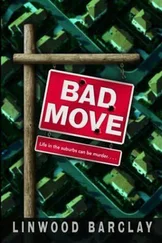In January 1959, a few days before the bulldozers working up from the south were to meet the bulldozers coming down from Belém to open the final link in the preliminary trail of the Belém road, Sayão was killed by a falling tree. He was directing the clearing of the dense rainforest near Imperatriz on the Rio Tocatins in the State of Maranhão. He had sat down for a moment at a rough table to check something on his map when the tree fell on him and crushed his skull. He died very soon.
The candongos , as they call the roadworkers and construction workers, revered him as a father. He was a saint who worked miracles. His death was the end of the world. One of his jeep drivers, Benedito Segundo, fell dead when he heard the news.
Bernardo Sayão and Benedito Segundo were the first men buried in the new cemetery at Brasília. The whole city was in mourning. People walked along the streets crying. Particularly the huts of the candongos were hung with crepe. The candongos begged that Dr. Sayão be buried standing up, with his face to the north, so that he could look forever up the great highway he had planned.
III
A NATION IN SEARCH OF A CAPITAL
The Madmen of the Planalto
“Mad,” growled Israél Pinheiro affectionately, when I first asked him about his friend the roadbuilder. We were at the Santos Dumont Airport in Rio in the pearly dawn of an August Sunday in 1958, waiting to take off for Brasília. “Of course he’s a little mad.”
Dr. Israél, as everybody calls him, is a rangy grayhaired quizzical man with a long rough-hewn countenance and a determined jaw under a clipped gray mustache. His tart manner tends to be mellowed by the play of expression on his face and by his sudden way of showing his long teeth in a dour smile to emphasize a joke. “… And so am I,” he added, “and so’s Kubitschek.” He grinned. “That’s why we get along so well. It takes madmen to put through a project like Brasília.”
We climb aboard and the Beechcraft roars into the air and circles over the city’s closepacked apartment buildings, which overtop dense parks and gardens tufted with royal palms and the bay, duncolored this morning and full of shipping; all enclosed in Rio’s fantastic frame of conical mountains and foaming white beaches. Above the abrupt crenelated mountain range which seems to be forever pressing the teeming city back into the ocean, the pilot sets his course into the northwest.
After the throngs and the jangling traffic and the brawling voices of loudspeakers and the dense humidity of the seaport it’s a delight to breathe the cool sharp air at six thousand feet. The checkerboard below is the resort city of Petrópolis, where the betteroff people of Rio spend their weekends among upland breezes. Beyond appears the deep gorge of the Paraíba, a river laced with rapids. There are textile factories set in crisscross patches of industrial towns on the plains beyond the mountains. Volta Redonda, where the steel mills are, is lost under the clouds to the left. To the right I catch a glimpse of Juíz de Fora, a textile town I spent a night in years ago. More mills, railroad yards … The plane bores into a high overcast.
At the end of an hour the Beechcraft is out in the sunshine again, flying over an enormous empty landscape. Small muddy watercourses wind between eroded hills. No, the green patches are not pasture, Dr. Israél explains, it’s a wild grass with little nutriment. He’s a stockman as well as a builder of cities. “Further west the grass is better.” The brightgreen oblongs now are sugarcane. “See: not a house, plenty of room for development,” he shouts with a creaky laugh.
“President Kubitschek says there’s half an inhabitant to the square kilometer. I can’t even see half an inhabitant.” “Wait till we finish Brasília,” Dr. Israél leans back in his seat to talk into my ear. “Every half will turn into ten.”
He pours a stack of glossy promotional literature into my lap: Brazil’s new capital in four languages.
Since the beginning of its existence as a separate nation, Brazil has been in search of a capital. The forerunners of independence in the late seventeen hundreds dreamed already of a federal city in the interior. At the convention which confirmed the setting up of a constitutional monarchy in 1823 Brasília was suggested as a name for the future capital. In 1891 the convention which established the charter for a federal republic on the model of the United States of the North set aside an area of four hundred and forty square leagues on the high plateau far west of the sweltering coastal lowlands as the eventual governing center of the Brazilian union. The constitution of 1946 laid down the manner in which the transfer of the capital should be carried out. When Juscelino Kubitschek was elected President ten years later he determined to make that long projected capital a reality.
Kubitschek was the son of a middle-European immigrant and a Brazilian mother. Like Dr. Israél he came from Minas Gerais. He was born in the secluded little city of Diamantina, which generations before had been the center of a great diamond industry. During Kubitschek’s boyhood years the place was a remote and forgotten settlement shrunken into a straggle of rambling old colonial buildings amid the scorched hills. Young Juscelino had no money behind him. A hardworking eager young man, he managed to get himself into the medical school in Belo Horizonte, the new capital of his state.
Belo Horizonte (Beautiful Horizon) — the Brazilians are fond of rhetorical names — was the first important Brazilian city to be built right off the drafting board. The people of Minas Gerais, Mineiros they call themselves, decided in the early nineteen hundreds that they needed a new state capital. Their old capital, Ouro Prêto (Black Gold) was, like Diamantina, an ancient colonial burgh where old families vegetated amid the superannuated splendors of convents and palaces and churches built in the days when the exploitation of great deposits of gold and precious stones brought wealth into these torrid uplands. All that was in the past. Now the raising of zebu cattle and corn and sugar cane and upland rice; manufacturing and the iron mountain at Itabira offered prospects of a new prosperity. Instead of gold and diamonds the Mineiros were beginning to dream of virgin lands to the westward.
The “beautiful horizon” the new state capital looked out on was the Brazilian west: the fertile river valleys running north into the Amazon and south into the Paraná and Paraguay rivers and the high plateau of Goiás and the wilderness of Mato Grosso.
The founding of Belo Horizonte was greeted by howls of derision from the rest of the country. Can’t be done, the wiseacres said; you can’t take a city off a drafting board and bring it to life. The wiseacres were wrong; the venture was successful. It was during Kubitschek’s student days that the city really began to take hold. Industries sprang up, the population grew. Already in 1958 Belo Horizonte had more than half a million inhabitants, bristled with skyscrapers and shining white apartmentbuildings, and was considered the pleasantest city in Brazil to live in.
So the idea that a city could be invented on the drafting board was nothing new to Dr. Kubitschek. After some studies in Paris and a successful career as one of Belo Horizonte’s leading urologists he was appointed mayor by Getúlio Vargas. From mayor of the state capital it was an easy step to governor of the state.
The Mineiros man one of Brazil’s smoothest political machines. They are a stubborn and clannish people with a sharp eye for the main chance; a man has to fight hard for a living among those scraggly hills. In the period of confusion and recrimination that followed Getúlio Vargas’s melodramatic suicide the Socialist Democratic party of Minas brought forth Dr. Kubitschek as their candidate for the presidency of Brazil. He was a new man, a progressive technician with his face towards the west, a doctor of medicine who was free from political entanglements. He was elected by an honest majority: Brasília was one of the planks in his platform.
Читать дальше












